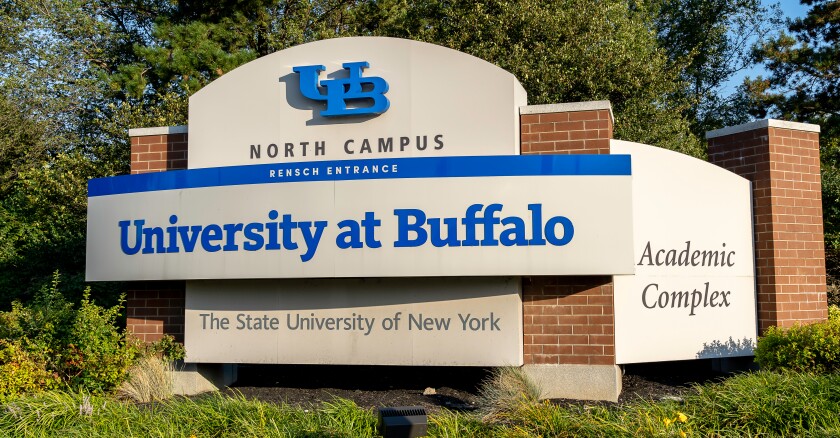The NSF grant is the first of 2023, the first New York State has ever received and the first since Schumer's plan to boost NSF funding for innovation to better compete with China was adopted last year.
The grant also represents the largest award currently possible from the National AI Institute, an arm of the NSF founded in 2019 to support institutions focused on "long-term, high-reward AI research," according to its website.
The new UB AI Institute for Exceptional Education will use the grant to further applications that can assist students with communication disabilities and improve their educational outcomes, Schumer said.
"The University at Buffalo is leading New York and our nation in developing major innovations in education technology, and now Buffalo will host NY's first-ever National AI institute to transform education for children who struggle to communicate," Schumer, D-N.Y., said.
"This major federal investment will help bring technology into the classroom to ensure all children receive the help they need with speech and language processing challenges — all thanks to the research of Buffalo scientists."
Sen. Kirsten Gillibrand and Rep. Brian Higgins also backed the grant, one of the largest federal grants ever received by UB, after Schumer's CHIPS and Science Bill increased NSF funding by more than $1 billion to jump-start research and development and STEM workforce training.
Schumer said the artificial intelligence technology being developed at UB will provide well-paying research jobs, a stronger tech workforce and more cutting-edge innovations "to help families and children across America get access to the education they need."
Over 3.4 million children need speech- and language-related services in school systems across America, but there are fewer than 61,000 speech language pathologists to serve them. Resource shortages and the pandemic have exacerbated the problem, making it hard for children to get the help they need to address speech issues in school, UB President Satish K. Tripathi said.
"There simply aren't enough speech-language pathologists in the United States and, as a result, children are not receiving life-changing interventions soon enough," said Venu Govindaraju, vice president for research and economic development at UB and the grant's principal investigator.
"Our multidisciplinary team will create advanced artificial intelligence systems that address this critical problem, allowing for earlier diagnoses and tailored interventions that close educational gaps and create more inclusive learning environments where children thrive both academically and socially," said Govindaraiu, a professor in UB's School of Engineering and Applied Sciences.
The five-year, $20 million effort will address the shortage of speech-language pathologists and provide services to children ages 3 to 10 who are at increased risk of falling behind in their academic and socio-emotional development.
The Institute for Exceptional Education at UB will be a partnership between NSF and the U.S. Department of Education's National Center for Special Education Research at the Institute of Education Sciences, with each agency contributing $10 million to directly address the problem.
The institute supports developing advanced AI technologies to scale speech language pathologists' availability and services so no child in need of speech and language services is left behind.
UB is developing two novel AI solutions — an AI Screener to enable universal early screening for all children, and the AI Orchestrator to work with speech pathologists to provide individualized interventions for children within their formal Individualized Educational Plan (IEP).
"In developing these solutions, the Institute will advance foundational AI technologies, enhance understanding of children's speech and language development, serve as a nexus point for special education stakeholders, and represent a fundamental paradigm shift in how speech language pathologists serve children in need of ability-based speech and language services," UB said in its grant application.
The institute will include more than 30 researchers from nine universities including UB; the University of Illinois Urbana-Champaign; Stanford University; the University of Washington; Cornell University; the University of Nevada, Reno; the University of Texas at El Paso; Penn State University; and the University of Oregon.
UB's team includes 15 UB researchers representing the School of Engineering and Applied Sciences, the College of Arts and Sciences, and the Graduate School of Education, encompassing artificial intelligence, natural language processing, social robotics, communicative disorders, diversity and inclusivity, learning science, communication and other fields.
Since 2020, NSF has founded 19 AI Institutes across the country, totaling $240 million in grants.
©2023 The Buffalo News (Buffalo, N.Y.). Distributed by Tribune Content Agency, LLC.















